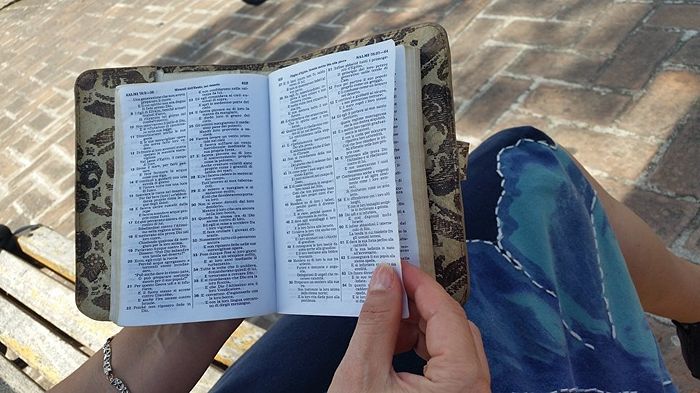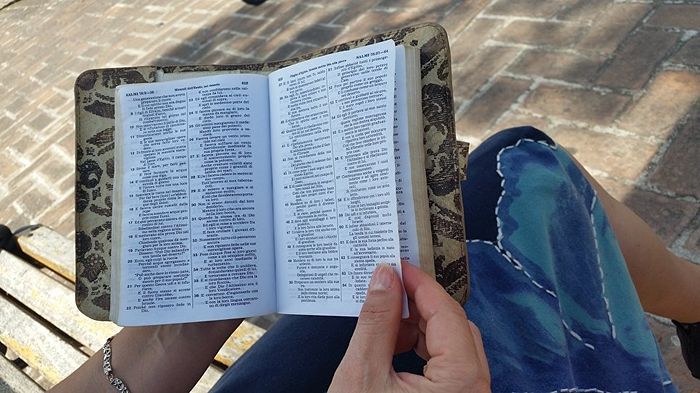
RUSSIAN SUPREME COURT BANS ACTIVITIES OF JEHOVAH’S WITNESSES
Pravoslavie.ru – 22/4/17
The Supreme Court of the Russian Federation declared the activities of “The Administrative Center of the Jehovah’s Witnesses in Russia” extremist and forbade its work, reports RIA-Novosti.
As previously reported, the organizaitons’s activities had been temporarily prohibited, pending the outcome of the official court case.
“The Supreme Court decided to satisfy the claim of the Russian Ministry of Justice and recognize the organization ‘The Administrative Center of the Jehovah’s Witnesses in Russia’ as extremist, liquidate it, and forbid its activities on the territory of the Russian Federation,” said Judge Yuri Ivanenko.
The court also decided to hand the organization’s property over to the state.
The organization may appeal the decision to an appellate court, in which case the ban will not enter into effect for the time being. However, the Ministry of Justice already previously suspended the center’s work until the legal dispute’s final resolution.
If the court’s decision enters into force, then Jehovah’s Witnesses members can be prosecuted for extremism under part 2 of article 282.2 of the Russian criminal code, “Participation in the activities of religious associations which the court has decided to liquidate or forbid the activities of, in connection with extremist activities.”
Thus, members who continue their activities could face imprisonment for a term of two to six years.
Throughout the proceedings it became clear that one of the Ministry of Justice’s main complaints against the Jehovah’s Witnesses is that they refuse blood transfusions, which it believes “constitutes a threat to health,” according to Ministry representative Svetlana Borisova. She also referred to a specific case in which an injured child’s parents refused to allow him the necessary blood transfusion due to their Jehovah’s Witnesses convictions.
In 2010, 10-year-old Vanya Orlukovich was hit by a car and in need of a blood transfusion. Doctors fought to give him the procedure, but his mother, a Jehovah’s Witness, refused. Doctors were eventually granted the right to perform the transfusion, but precious time had been lost. “I don’t think he died from this, but from his serious head trauma. He could hardly have been saved,” his mother, Lyudmila Orlukovich said.
It is one thing to deny your own transfusion, according to Dr. Alexander Dvorkin, President of the Russian Association of Centers for the Study of Religions and Sects, but another to deny it on behalf of someone else. “It is an especially scary situation when we’re talking about children, and it’s obvious that it’s a sect making the decision for him,” he stated.
The Ministry of Justice is convinced that the Jehovah’s Witnesses poses a threat to the protection of the rights and interests of society and of public security. According to the ministry’s lawyer, 95 of the organization’s brochures were deemed extremist, as well as the activities of eight of its regional branches throughout Russia.
According to Dvorkin, Jehovah’s Witnesses forbid voting and being elected, military service, the celebration of all holidays, and singing the national anthem and respecting the nation’s flag. In his view, the ban on voting is especially serious because it means the organization does not “recognize the constitutional structure of the country.” He noted that the court is, of course, not banning beliefs, but rather practices. “Can there exist within the country an organization which does not recognize its constitutional structure[?] In any case, should such a group receive privileged tax-exempt status?” Dvorkin asked.
The court also heard the statements of several former Jehovah’s Witnesses members who directly testified to the extremist and totalitarian nature of the group. Natalia Koretskaya of St. Petersburg, a member from 1995 to 2009, stated that organization members “live under the complete and total control of the administrative center’s adepts.” Officially, they simply monitor compliance with canonical norms, according to her testimony, “but, in fact, we are talking about total control of your personal life—your love life, education, and work.”
Another former member, Paul Zverev, testified that the organization believed that higher education did not serve their purposes in any way, and so he pursued no education, and now is suffering because of it.
The lawyers representing the religious group reject all of the Ministry’s claims, in particular asserting that the rejection of blood transfusions is not a form of extremism, and noting that the Ministry only pointed to one pertinent case in which doctors actually presented the parents with two options, and they chose to treat their child with medication.
“Every citizen, Jehovah’s Witness or not, has the right to refuse a blood transfusion and to choose treatment by medication,” said a representative of the organization. They also denied that there is any extremism in the forbidden brochures. Furthermore, they argued that searches of Jehovah’s Witnesses property were carried out illegally, in the absence of any members of the organization.
The court’s new decision directly affects about 400 registered sites of the organization, and 2,277 groups throughout the country, consisting of 175,000 followers of the religion, according to the Administrative Center.
In a report of the verdict on the jw-russia.org website, Jehovah’s Witnesses described the outcome of the case as “a black day for fundamental human freedoms in Russia.” They noted that “this decision could lead to the saddest consequences for believers of different faiths, as well as for Russia’s image on the world stage.”


836090 265325Hi, in the event you want to get higher rankings, you need to check out the plugin I left in my link, it will assist. 875403